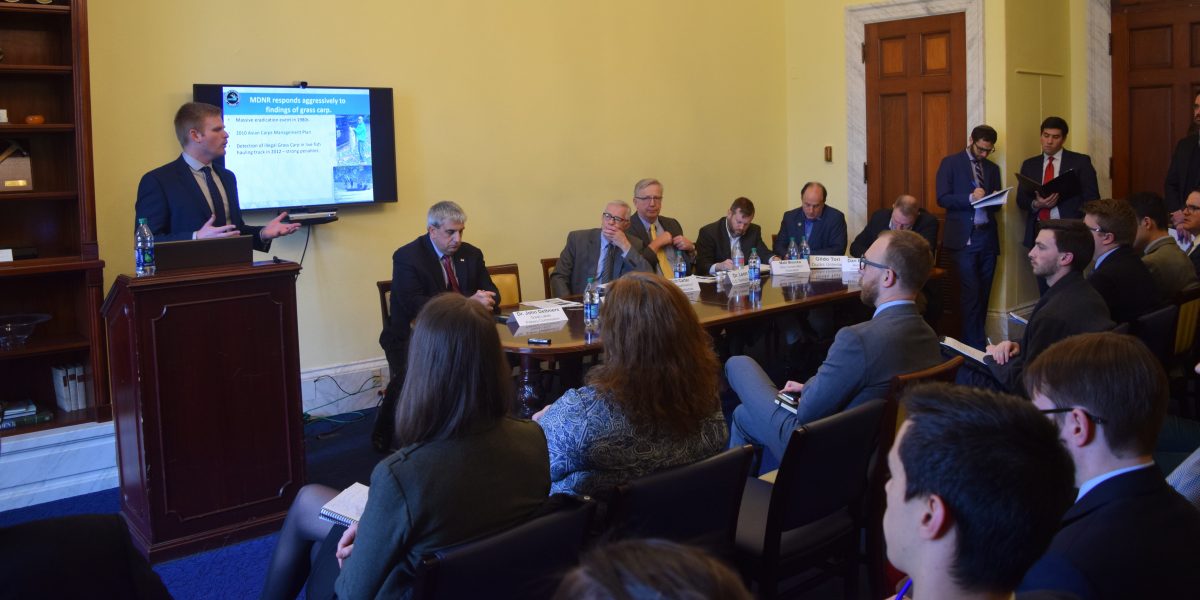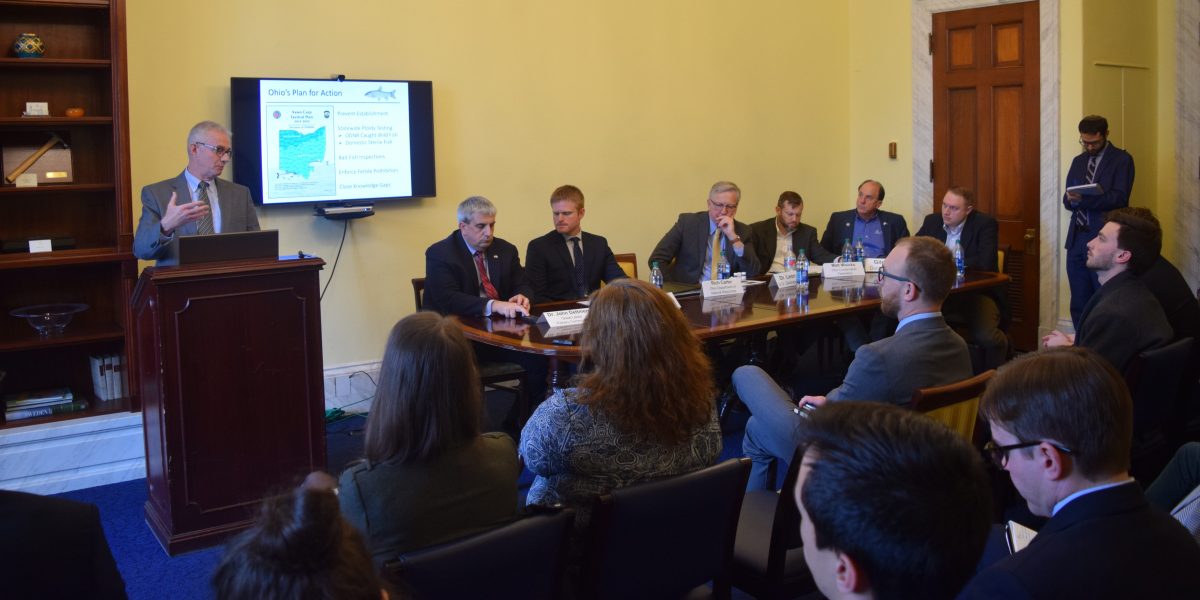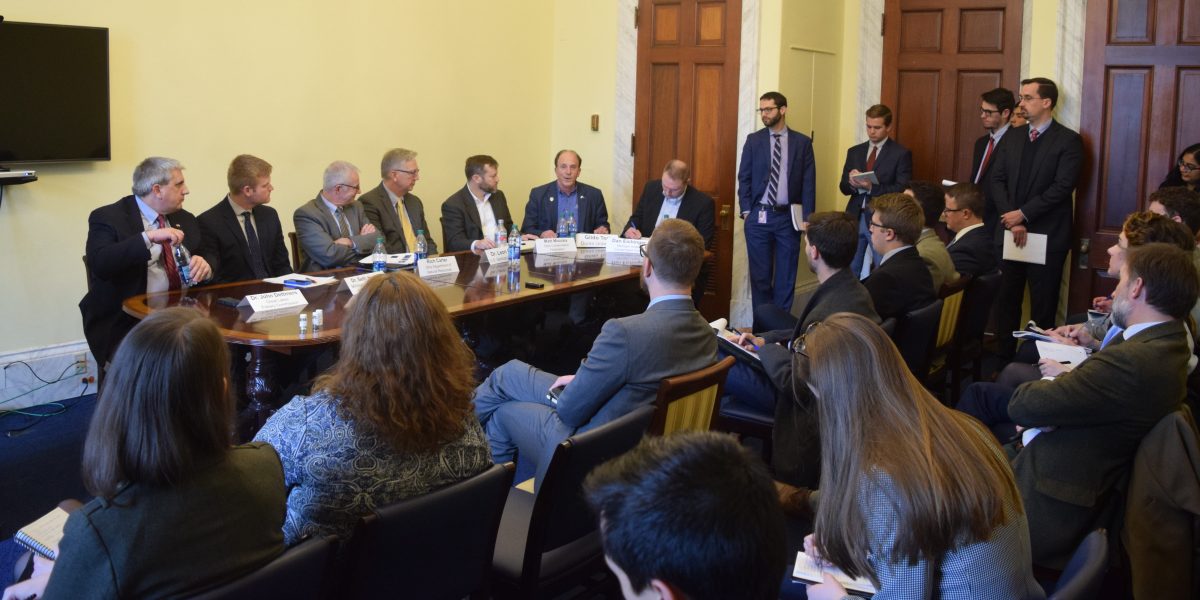A seven-person panel highlighted a Capitol Hill briefing on invasive Asian grass carp in the Great Lakes on February 6, 2018. The panel consisted of federal agencies, state natural resource agencies, conservation nonprofits, and sportsmen groups offered insights on grass carp from their perspectives. The briefing provided an opportunity for Congressional staff to learn from experts in the field about current research being done to analyze and disrupt the spread of Asian grass carp as well as the impacts carp have on Great Lakes ecosystems, recreational activities, and economies.
A full, timestamped audio recording of the briefing can be found here.
The slides used during the briefing can be found 18.02.06-Asian-Carp-Briefing-Combined-Presentations.pdf">here.
Dr. John Dettmers with the Great Lakes Fishery Commission outlined different approaches to governance at the tribal, state, federal, and binational levels. He also briefed attendees on the estimated risk of Asian grass carp developing an established population in Lake Erie and the possible damage they would impose on the native Great Lakes ecosystems.
Dr. Seth Herbst of the Michigan Department of Natural Resources and Rich Carter of the Ohio Department of Natural Resources each provided updates on their states’ efforts to combat Asian carp. Dr. Herbst provided an overview of Michigan’s tracking measures, response plans, bounty programs, and partnerships with universities and commercial fishers. Mr. Carter outlined 2017 Ohio initiatives to eradicate grass carp in Lake Erie as well as the lessons learned from netting and trapping efforts. He also covered future Ohio plans, including the 2018 release of a collaborative, five-year response plan based on the success of previous effective removal strategies. The Great Lakes Restoration Initiative (GLRI) serves as a major funding source for these efforts.
Dr. Leon Carl from the U.S. Geological Survey provided an update on the scientific dimension of grass carp eradication, outlining current research into Asian grass carp population estimates, reproduction, movement, and toxins targeted at eliminating them. He also covered upcoming research needs, including the development of hydraulic models for rivers to better predict spawning locations and timing.
Dan Eichinger of Michigan United Conservation Clubs, Matt Misicka of the Ohio Conservation Federation, and Gildo Tori of Ducks Unlimited represented conservation and sportsmen groups on the panel. Their presentations focused on the social, economic, and recreational impacts of Asian grass carp. Vegetation essential to water fowl habitats, for example, are greatly threatened by invasive Asian carp, and the damage would adversely impact recreational activities that help support regional economies.
This briefing was hosted by the Great Lakes Washington Program (GLWP) at the Northeast-Midwest Institute. Created to further the restoration and revitalization of the region, the GLWP improves the Great Lakes ecosystem and economy through its relationship with the bipartisan U.S. Senate and House Great Lakes Task Forces of the Northeast-Midwest Coalitions, as well as its outreach and interaction with state, provincial, and federal agencies, experts, and stakeholders. By conducting and providing non-partisan federal policy research and background, and tracking legislation, the GLWP serves as a trusted source for the region on Great Lakes issues. You can read more about the GLWP here.
The Northeast-Midwest Institute is a Washington, D.C.-based, nonprofit, nonpartisan public policy organization committed to economic vitality, environmental quality, and regional equity for the 18 states of the Northeast and Midwest.


